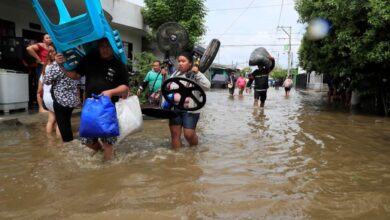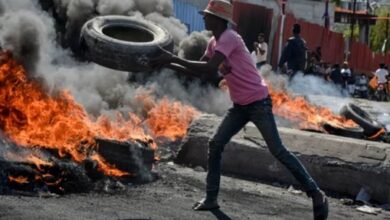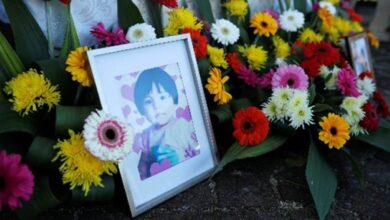What Mistakes Cannot be Repeated in Haiti?
On an island so affected by natural disasters, it is time to recognize the things that have not worked in the past and not to repeat them.

Haiti is in the news again. Unfortunately, the small Caribbean nation is making headlines in the international media for a natural disaster. Photo: Unsplash
LatiAmerican Post | Santiago Gómez Hernández
Listen to this article
Leer en español: ¿Qué errores no se pueden repetir en Haití?
Haiti is in the news again. Unfortunately, the small Caribbean nation is making headlines in the international media for a natural disaster. In 2021, after having gone through a coup d'état with the assassination of its president, Haiti suffered an earthquake that left several effects in Port-au-Prince, mainly.
???? La devastación por el terremoto en Haití
El sismo de magnitud 7,2 registrado el pasado sábado en el suroeste de Haití causó al menos 2.000 muertos, casi 7.000 heridos y dejó sin hogar a miles de familias
https://t.co/BuoDsAROGF— EL PAÍS América (@elpais_america) August 19, 2021
The earthquake of 7.2 degrees on the Richter scale left more than 2,000 dead, 6,900 injured and hospitals overwhelmed. It looks like deja vu from the 2010 earthquake that also left the country in ruins.
Difference between both earthquakes
Despite the fact that this year's earthquake was powerful, hard, and deadly; It is not easy to find a close comparison to that of more than 10 years ago. In 2010, the movement had a magnitude of 7.0 Mw and was generated at a depth of 10 km, according to the United States Geological Survey. Despite being similar in potential to the past, 2010 left a staggering 316,000 people dead, 350,000 injured, and 1.5 million homeless, one of the most devastating earthquakes on record.
Also read: How to understand the assassination of the president of Haiti?
Faced with this new panorama that seems like repetition, it is important that we look back and not repeat the same mistakes that occurred in Haiti. Health strategies, food and water treatment, and the fight against corruption must be among the priorities at the time of a new panorama of reconstruction.
Cholera outbreak
One of the mistakes that we must learn to avoid repeating is to avoid an outbreak of a contagious disease. In 2010, after the country tried to advance in reconstruction, a cholera outbreak finally hit the nation again. According to the Pan American Health Organization (PAHO), the outbreak began in October 2010, affected more than 820,000 people, and killed 9,792.
Cholera is a disease that produces chronic diarrhea that, if not treated properly, can cause death. It is transmitted by the ingestion of "food or water contaminated with the bacillus Vibrio cholerae", as the WHO explains. This could easily be avoided with plans to supply potable water to the affected population and to guarantee clean sources for human consumption, together with education and information programs for the community. However, it will also be vital to continue and strengthen the programs or projects that have been carried out since then to guarantee the health of Haitians.
However, there are also journalistic investigations that link the contagion of Cholera to the presence of the peacekeepers. According to a report by ElConfidencial, the bacteria arrived on the island through a group of blue helmets from Nepal. Either due to an external contagion that is aggravated by the mismanagement of drinking water, on this occasion, the UN and the international community must be careful when operating on the island.
Faced with this new natural disaster, international aid must identify water supplies and prevent another disease outbreak. But, in the context of the COVID-19 pandemic, it is vitally important to have health care and the sending of protective equipment, care, treatment, and vaccines to the island.
Corruption in international aid
Likewise, the international community should pay close attention to reconstruction projects and support for the island. After the 2010 disaster, international aid managed to raise $ 13.34 billion, according to the Office of the United Nations Special Envoy for Haiti.
However, after several years of the earthquake, several cases of corruption in the contracts for the reconstruction of houses were known. In 2015 NPR and ProPublica revealed that in five years, $ 5 billion from donors had only been used to build 6 houses. Likewise, they learned that projects backed by 30 million euros disappeared in a suspicious way.
The different donor governments agreed to disburse 5.3 billion dollars to rebuild the country, they even spoke of 9.9 billion in the long term, in a task that still remains unfinished today, and surely because most of that money was never actually shipped to the country.
IFRC ha enviado 15 toneladas de bienes de primera necesidad a Haití a través de la fragata Germinal de la Armada Francesa, gracias al apoyo de @PIRAC_CRF en respuesta al terremoto del 14 de agosto. pic.twitter.com/sZrfDsOS1P
— IFRC Americas (@IFRC_es) August 18, 2021
Today, since several countries have already announced their support and humanitarian aid to the island, there must be a clear record and transparent monitoring of the contributions sent. There should also be control of the NGOs that work on the island. Unfortunately, given the lack of institutionality, adding to the recent death of its president, the oversight must be in charge of the international community.




